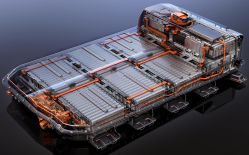— A Chevy Bolt battery fire investigation has been closed based on recalls announced by General Motors that will replace all the battery modules in 2017-2022 Bolts.
The National Highway Traffic Safety Administration opened the federal investigation in October 2020 based on fires that occurred in 2017-2020 Chevrolet Bolt electric vehicles.
Bolt owners complained the fires started under the seats while the cars were parked and unattended. NHTSA also said the Bolts caught fire while the cars were being charged or at the end of the battery charging cycles.
In response, GM announced a Chevy Bolt recall in November 2020 to install software, and if needed the batteries would be replaced. Chevy Bolt owners were told to change the charge settings to a maximum of 90%.
GM and battery supplier LG Electronics continued to investigate the battery fires and found more fires which occurred in Bolts that had been "repaired" during the recall.
More Chevy Bolt battery fires occurred and led to a July 2021 recall and a August 2021 recall.
Because none of the recall repairs fixed the battery fire risk, GM said all 2017-2022 Chevy Bolts would have their batteries replaced at a cost of about $2 billion.
GM and LG engineers determined the Bolt batteries have two separate defects which allegedly need to occur at the same time for the cars to catch fire. According to General Motors, a single battery cell in the module must have a torn anode tab and also a folded separator.
In addition to installing new batteries, the Chevy Bolt EV and Bolt EUV batteries will be covered by 8-year/100,000-mile warranties (8 years/160,000 km warranty in Canada). GM dealers will also install new software to allegedly monitor the new batteries for potential problems.
NHTSA says the Bolt battery fire investigation is closed based on GM's recalls to replace the batteries, but the government says it "reserves the right to take additional action if warranted by future circumstances."

